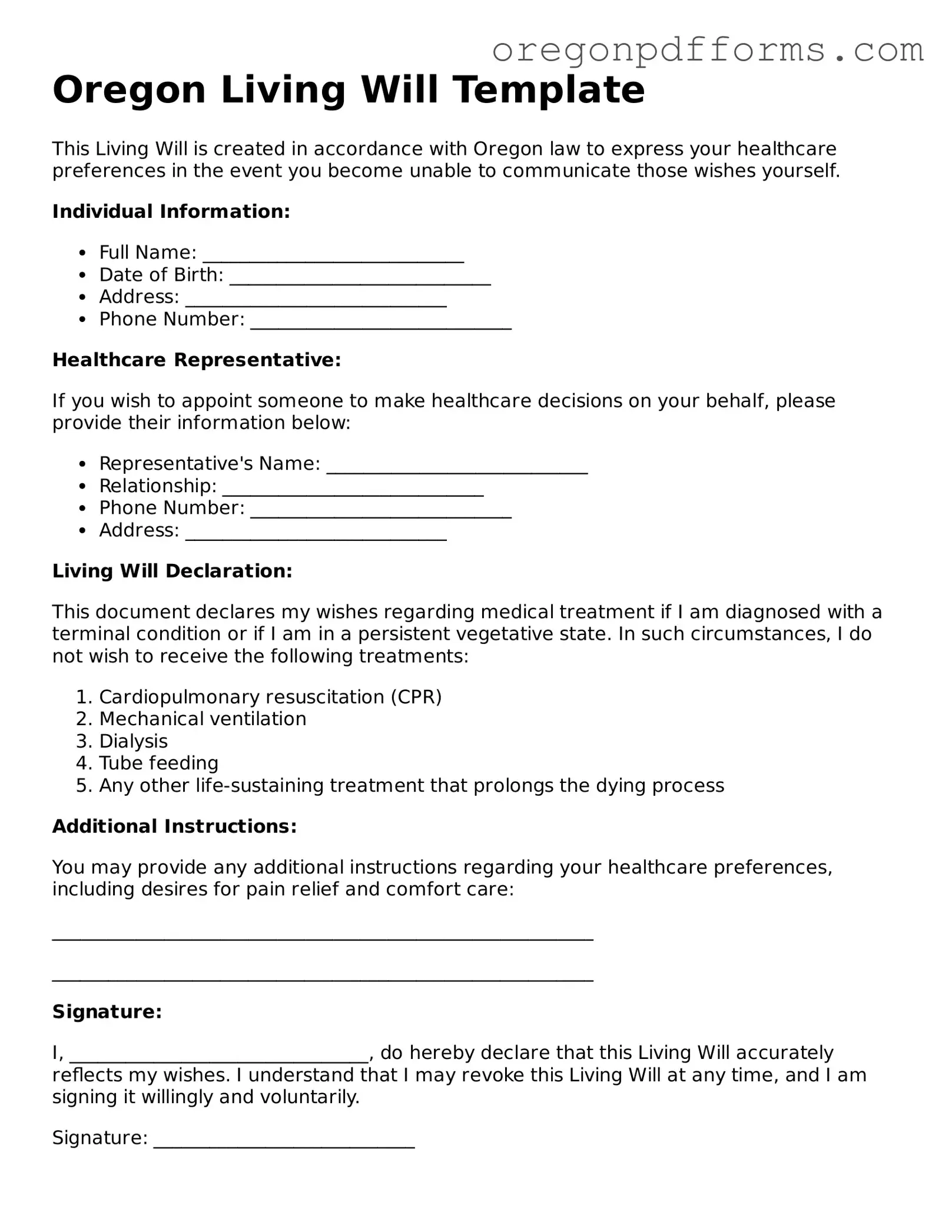Valid Living Will Document for Oregon
A Living Will is a legal document that allows individuals in Oregon to express their wishes regarding medical treatment in case they become unable to communicate those wishes themselves. This form is essential for ensuring that your healthcare preferences are respected, particularly in critical situations. Understanding how to complete and use this document can provide peace of mind for you and your loved ones.
Open My Living Will

Valid Living Will Document for Oregon
Open My Living Will

Open My Living Will
or
Get PDF
A few steps left to finish this form
Complete Living Will online with easy edits and saving.